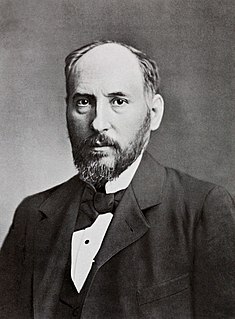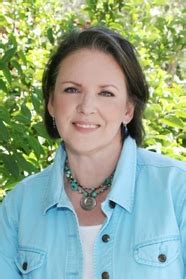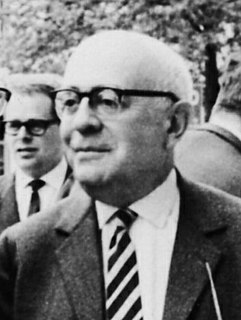A Quote by Brennan Manning
The ragamuffin who sees his life as a voyage of discovery and runs the risk of failure has a better feel for faithfulness than the timid man who hides behind the law and never finds out who he is at all.
Related Quotes
It has always been my belief that the true artist, like the true scientist, is a researcher using materials and techniques to dig into the truth and meaning of the world in which he himself lives; and what he creates, or better perhaps, brings back, are the objective results of his explorations. The measure of his talent--of his genius, if you will--is the richness he finds in such a life's voyage of discovery and the effectiveness with which he is able to embody it through his chosen medium.
He who stands aloof runs the risk of believing himself better than others and misusing his critique of society as an ideology for his private interest. While he gropingly forms his own life in the frail image of a true existence, he should never forget its frailty, nor how little the image is a substitute for true life. Against such awareness, however, pulls the momentum of the bourgeois within him.
It is better to travel with hope in one's heart than to arrive in safety. . . . We should celebrate today's failure because it is a clear sign that our voyage of discovery is not yet over. The day the experiment succeeds is the day the experiment ends. And I inevitably find that the sadness of ending outweighs the celebration of success.
At one time or another the more fortunate among us make three startling discoveries. Discovery number one: Each one of us has, in varying degree, the power to make others feel better or worse. Discovery two: Making others feel better is much more fun than making them feel worse. Discovery three: Making others feel better generally makes us feel better.
Never an illness, nor the absence of grandeur, no, nothing is able to kill the best in us, that kindness, dear sir, we are afflicted with: beautiful is the flower of man, his conduct, and every door opens on the beautiful truth and never hides treacherous whispers. I always gained something from making myself better, better than I am, better than I was, that most subtle citation: to recover some lost petal of the sadness I inherited: to search once more for the light that sings inside of me, the unwavering light.
To laugh is to risk appearing a fool. To weep is to risk appearing sentimental. To reach out to another is to risk involvement. To expose feelings is to risk exposing your true self. To place your ideas and dreams before a crowd is to risk their loss. To love is to risk not being loved in return. To hope is to risk pain. To try is to risk failure. But risks must be taken, because the greatest hazard in life is to risk nothing.
































